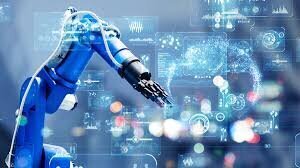AI-Driven Industrial Automation: Enhancing Efficiency and Safety
Industrial automation has undergone a significant transformation with the integration of artificial intelligence (AI) technologies. Advanced AI models and frameworks are revolutionizing manufacturing processes, improving efficiency, and enhancing safety across various industries.
Anomaly Detection
One of the key AI applications in industrial settings is anomaly detection. This technology allows manufacturers to identify unusual patterns or deviations from normal operations, potentially preventing equipment failures and production disruptions. AI-enabled software undergoes a learning phase to establish a baseline for normal operations, after which it can automatically monitor equipment and generate alerts when anomalies are detected[3]. This proactive approach to maintenance can significantly reduce downtime and extend the lifespan of industrial assets.
Object Tracking
Object tracking systems powered by computer vision are becoming increasingly prevalent in manufacturing environments. These systems can monitor production lines, track inventory, and ensure quality control. By accurately following the movement of products and components throughout the production process, manufacturers can optimize workflows, reduce errors, and improve overall efficiency[5].
Predictive Analytics
Predictive analytics leverages historical and real-time data to forecast future events and trends in industrial processes. By analyzing patterns and correlations in vast amounts of data, AI models can predict equipment failures, optimize maintenance schedules, and even suggest process improvements. This capability allows manufacturers to shift from reactive to proactive maintenance strategies, reducing costs and minimizing unexpected downtimes[3].
Integration and Implementation
The implementation of these AI technologies often involves the use of sensors, IoT devices, and edge computing to collect and process data in real-time. Cloud-based platforms and software suites can then aggregate data from multiple sources, providing comprehensive insights and visualizations for plant personnel[3]. This integration allows for a more holistic approach to industrial automation, enabling data-driven decision-making across entire enterprises.
Benefits and Future Outlook
The adoption of AI in industrial automation offers numerous benefits, including increased productivity, improved product quality, enhanced safety, and reduced operational costs. As AI technologies continue to evolve, we can expect even more sophisticated applications in the future, such as AI-driven control systems that not only detect anomalies but also prevent them from occurring in the first place[3].
Industrial automation powered by AI is not just about replacing human workers; it’s about augmenting human capabilities and enabling more efficient, safe, and intelligent manufacturing processes. As these technologies become more accessible and refined, they will play an increasingly crucial role in shaping the future of industry.
Further Reading
1. Anomaly Detection
2. https://www.sciencedirect.com/science/article/pii/S0167739X21000431
3. How Automated Anomaly Detection can Maximize Production | Yokogawa America
4. Workshop Studio
5. Automated Anomaly Detection in Manufacturing


